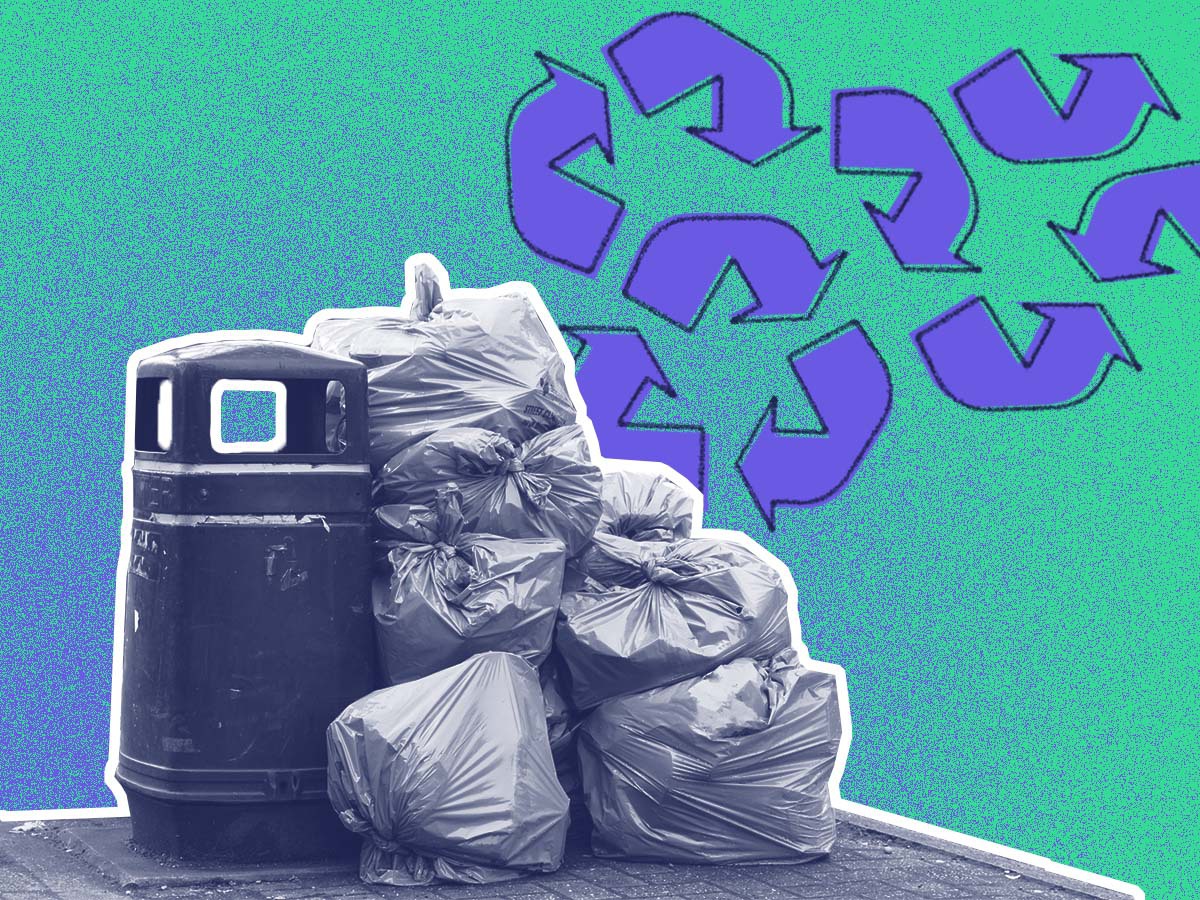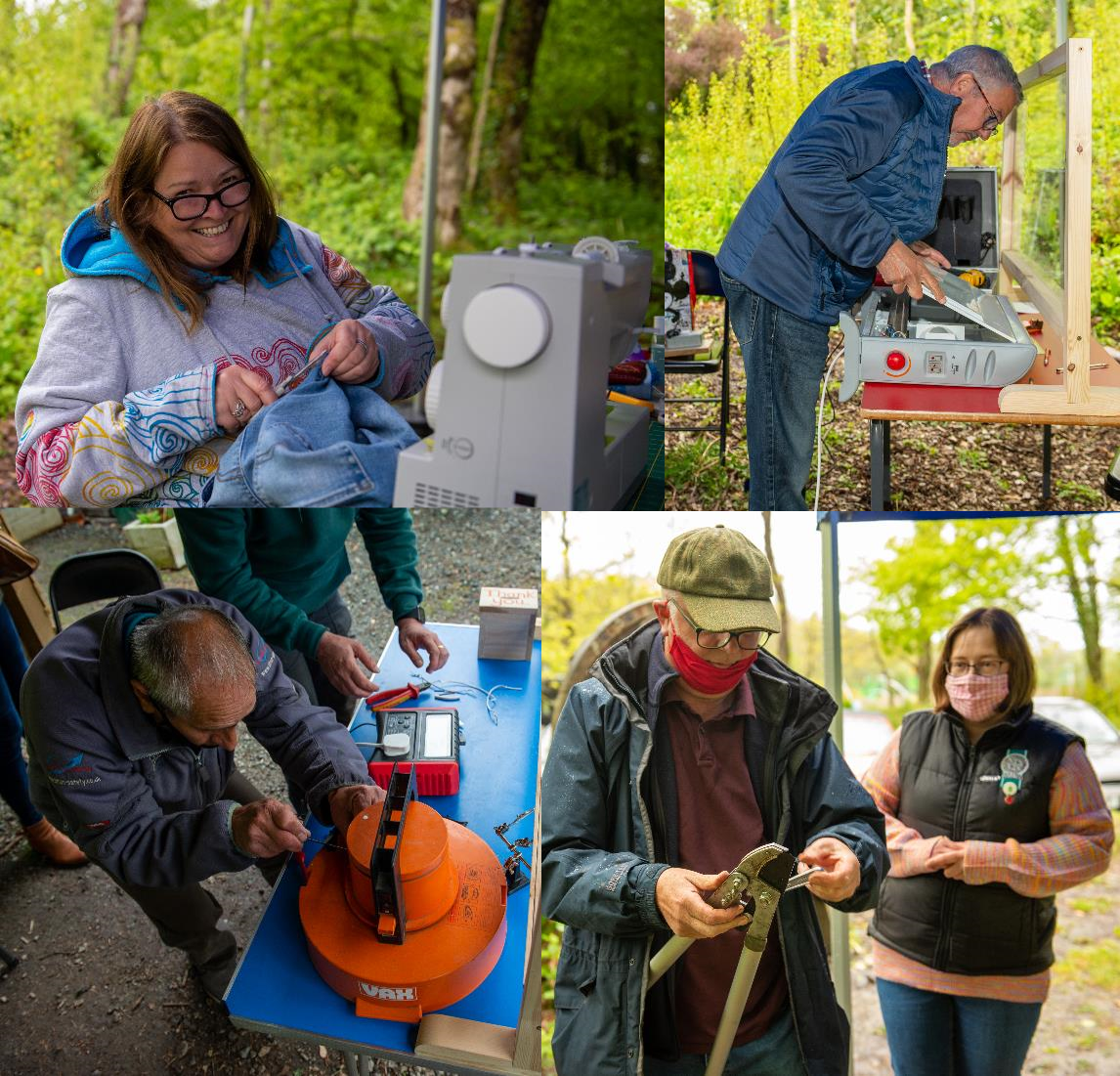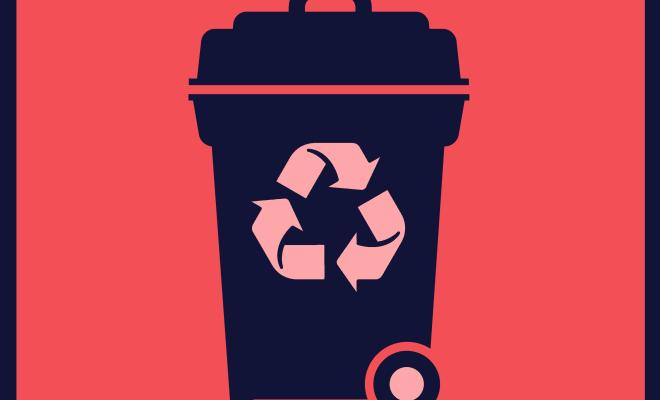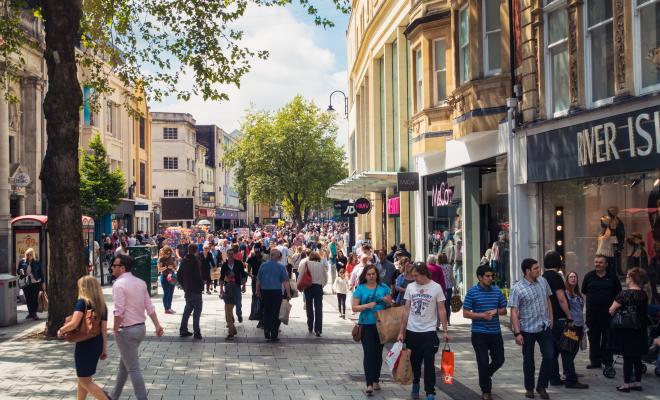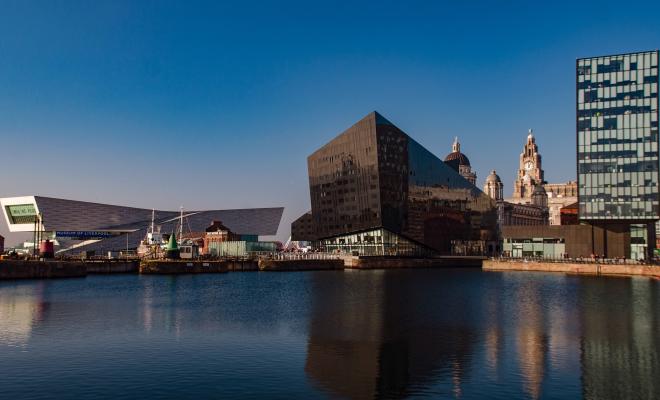20 Sep 2024
How is Action 39 tackling the climate crisis?
Waste is a climate issue due to the emissions caused by manufacturing products that are then thrown away, and due to the methane gases released at landfill sites (methane is a greenhouse gas).
Pembrokeshire County Council’s share, repair and reuse network cuts waste and benefits local communities. It was launched in March 2021 and has 3 key elements:
- 11 repair cafes spread across the county where volunteers fix broken items for free. Each cafe has its own specialism, from bikes to textiles. This work is supported by Repair Cafe Wales, a community interest company expanding the repair cafe concept across the country.
- A Library of Things in Haverfordwest launched online in March 2021 and in-person in November 2021, where residents can borrow items from the library at a low cost. The centre is supported by Benthyg Cymru, the Welsh Library of Things champion.
- A series of re-manufacture workshops which take unwanted, broken or outdated objects that would otherwise go to landfill, repair and upcycle them, and then sell them to make money for local charities.
On top of this, Pembrokeshire has an impressive recycling rate of 72% for 2022/23, the joint highest in Wales, making for a truly comprehensive approach to reducing consumption and waste in the county.
What impact has the project had?
The council’s work on reducing waste and promoting a culture of reuse and repair has been designed to create wide-ranging social benefits, particularly for vulnerable community members including disabled people, those with poor health or those on low incomes.
“The significance of this project is huge, not just for the council, but for people in Pembrokeshire. It’s an opportunity and a new way of working. Those usual household items that people would just throw away can now be fixed easily. Not only does this help that person in the moment, it makes them think before they throw something else out in the future. This project shows that the circular economy is not just about doing things sustainably; it can also be about supporting people into employment. An inclusive economy can be supported through a circular economy.”
Councillor Joshua Beynon
Providing skills training
The reuse and repair network is led by Norman Industries, a supported business run by and as part of Pembrokeshire County Council. Norman Industries offers paid work, training and work experience for people with physical, sensory or learning disabilities, mental health issues, and work-limiting health conditions. It employs more than 60 people. By delivering the various schemes through Norman Industries, the council is simultaneously promoting its green agenda and opportunities for people who face barriers to work.
The items upcycled by Norman Industries' employees and volunteers in the workshops were originally sold at Paul Sartori shops, a charity that offers free at-home nursing and medical care for people with life-limiting illnesses.
The council also has a thriving partnership with Pembrokeshire FRAME, a supported employment charity similar to Norman Industries. FRAME provides reuse and reduce operations, and helps disadvantaged people learn job skills, from collecting used furniture and household goods to marketing and delivery services. FRAME is dedicated to easing poverty in rural communities.
Repaired items
The reuse and repair network wasn't fully active in its first months due to coronavirus restrictions in place in Wales, which stopped people from meeting physically. Despite this, as of November 2021:
- 45 repair cafes had been held by 5 different organisations.
- 187 people had brought a total of 226 items to the cafes, which had been repaired by a team of 32 new volunteers. Interest grew over time, with each cafe busier than the last.
- 250 items had been re-manufactured and sold over a 6-month period through the workshops.
Items repaired may otherwise have been thrown away and new items bought, adding to waste and expense. The services provided through the network have been particularly important for residents living in deprived wards who are able to get items fixed without great expense.
Raising awareness
Awareness of the circular economy has spread among the general public and partner organisations. Residents are very enthusiastic about the network, feeding back positively and offering their own ideas, for example suggesting which items they'd want to borrow from the Library of Things. The council’s reputation has already been boosted by the project, and it hopes to see this effect snowball as more people hear about the activities.
Replication
With the success of the share, repair and reuse network under its belt, the council has provided a leading example for other organisations in the county to follow suit. New repair cafes have been set up independently by inspired individuals.
What made this work?
Supportive national policies
The Welsh Government is aspiring to be a world leader on the circular economy and a zero-waste nation by 2050. In 2019 it published its Towards Zero Waste strategy, which was followed by the Beyond Recycling strategy in March 2021.
Over the course of 2020 and 2021, the Welsh Government made £43 million available for its circular economy fund. The Well-being of Future Generations (Wales) Act 2015 also provided a useful legislative framework for council officers to work within. Pembrokeshire’s efforts are part of a nationwide vision that's a source of Welsh pride.
Cross-party political support
On a very politically mixed council, officers have received collaborative, universal support from councillors who are all fully on board.
Partnership working
Making a comprehensive package of repair and reuse options available in Pembrokeshire has required the co-operation of many partners. Apart from those already mentioned, other partners include Pembrokeshire College, Clynfyw Care Farm, TYF St Davids, Grwp Resilience and Scolton Manor.
Making this partnership community-led and not top-down has generated massive rewards. The council drew upon familiar and established relationships but didn't limit itself to these default partners. At the outset it issued an open call, inviting any group to reach out about taking part.
Consequently, the eventual list of partners was more diverse. Each willingly engaged out of a genuine passion for the project, which elevated its ambition and creativity.
“Working with the community enabled us as a local authority to do something we wouldn’t have been able to do on our own. Partnership working doesn’t come easy; it takes a lot of push and pull, but it really does work. Including those community groups has brought us so many great ideas.”
Karen Davies, Programme Manager at Norman Industries
Freedom to experiment
The nature of the Welsh Government funding and the attitude of councillors meant there was little red tape or bureaucratic criteria to work around, giving council officers and their partners rare space to explore unusual ideas. This freedom has given partners new confidence in their ability to deliver and has inspired a range of new work, with and beyond the council, that wouldn't have occurred otherwise.
For example, Pembrokeshire College has established its own repair workshop as a result of its involvement in the network. The workshop is now a key part of the college’s provision for students with additional learning needs. The college is a long-time council partner, but the project has improved this relationship.
Grwp Resilience, a community wellbeing charity, was a founding member of the network. The original funding it secured to participate in the network, and the lessons learned from it, became a catalyst for it to expand its green activities. Grwp has since received funds from the Enhancing Pembrokeshire grant scheme (which is managed by the council’s regeneration team) and has also benefited from the UK Shared Prosperity Fund. Grwp continues to run circular economy projects as well as newer ventures in revitalising green spaces.
Cross-department collaboration
The share, repair and reuse network emerged out of Pembrokeshire County Council’s work around supported employment rather than the climate and environmental agenda, but the 2 have melded together smoothly.
Alone, the social care team or the waste and recycling team couldn't have delivered this multi-faceted project. By avoiding departmental silos, the council has been able to leverage a single funding stream (circular economy funding) to achieve multiple objectives.
A proven business model
Joined-up thinking made the project financially viable. Pembrokeshire has a tried and tested model for all its supported employment work. Every project has an income-generating main element, which is then paired with a non-income generating element running alongside it.
The Library of Things is a key example. As a standalone enterprise, the library wouldn't function because the income it generates isn't substantial. Instead, the library has been combined with a community cafe in one town centre shop unit. The cafe's income covers the operational costs of the library that's housed in the same space.
What resources were needed?
The Pembrokeshire scheme has been financed by a £605,000 core grant from the Welsh Government under its circular economy programme. This came with the challenge of a short-term deadline for launching the scheme, with funding having to be spent in a small space of time.
The council has been able to look at more novel pots of funding due to its cross-departmental approach and the range of social, economic and environmental co-benefits woven into the network. In 2024 the council was able to access a smaller Welsh Government grant specifically looking at advancing net zero in the social care sector.
Initial discussions began in November 2020, and the network launched in March 2021. The condensed 5-month timeline from conception to launch was the biggest challenge for Pembrokeshire. However, it was also a catalyst, forcing the team to focus and enabling them to make quick decisions without having to jump through the ordinary hoops associated with extended project timescales.
A group of 25 to 30 individuals, with varying levels of input, from the council and its partner organisations were closely involved in planning and delivery during this period. Within the council, multiple teams across leisure, regeneration, waste and recycling, education and social care have worked together.
Lessons from Pembrokeshire
The digital aspect
The share, repair and reuse network relies on a digital platform and a database to function, especially the online catalogue for the Library of Things. Pembrokeshire College set up the catalogue for the council, also receiving help from Benthyg Cymru and Repair Cafe Wales to manage the digital side of things.
Social media has been important in raising awareness. The council’s first social media posts about the project were averaging 500 engagements per post. By November 2021 engagements had reached up to 6,000 per post, showing significant growth in interest. This is thanks to Pembrokeshire College students and members of the Norman Industries supported employment team who've run the digital marketing on the council’s behalf.
Location
To benefit as many people as possible, the council has ensured that all elements of the network are in accessible locations. The Library of Things is located next to the bus station in Haverfordwest, for instance. The repair cafes take place across the county so that the whole Pembrokeshire community can benefit.
Long-term sustainability
There's no set end date for the network, but some elements of the Pembrokeshire project are more financially sustainable than others. The ability of some third-sector partners to continue participating has been dependent on successful funding applications. The council has mitigated this by embedding the project within the council’s ongoing supported employment programme, extending its lifecycle. All 3 parts of the network are currently sustainable due to a combination of income generation, volunteer time and access-to-work funding. In future, the council will seek additional funding should it wish to expand the network.
To avoid the whims of short funding cycles, other councils should think about tying community sharing projects to a bigger programme of council work to make them long term instead of short term.
Flexibility and resilience
Remaining flexible and responsive, and adapting creatively to shifting circumstances have also been central to keeping the network alive beyond the short term.
For instance, the Library of Things has evolved from its original format and has become more tailored to demand. Due to a lack of qualified volunteers to conduct safety checks, the library no longer lends electrical items. However, this has allowed the library to focus on what have emerged as its 2 most popular borrowing services: its Borrow a Bike scheme and lending adaptive equipment for disabled residents. The 200 bikes were donated from a local tourism operator at nearby Llys-y-Fran Reservoir which was replacing its own set of bikes with newer ones. The bike scheme is active daily.
Similarly, the upcycling element of the network has evolved. The original partnership with Paul Sartori came to an end after the charity decided to continue its upcycling work independently. The council took a pause to re-evaluate and is now exploring new partnerships and ideas in 2024, for example with Bluestone Wales, a local holiday resort whose chalet furniture could be refurbished instead of replaced. There’s also potential for elderly daycare centres in the county to have furniture upcycled in this way.
“We deliberately re-evaluate the work we are doing within the network; we tweak things or close things if they do not make sense and are willing to do new things if that is what is needed. We’re flexible and recognise that it is okay to continue on a route slightly different from what we first envisioned. Our repair cafes are going great guns and have been a real success story beyond what we originally imagined."
Karen Davies, Programme Manager at Norman Industries
Useful information
To find out more, contact Karen Davies or visit pembrokeshirecircle.org.
Related projects
We've found some examples of other council activity on this topic.
- Camden Council and the community have turned an empty cafe into a pop-up solution centre for tackling the climate and ecological crises.
- Merton and Hackney councils have partnered with Library of Things so locals can share various equipment and household items.
Friends of the Earth's view
It’s important to join up the need to take action on climate with the opportunity to provide new green jobs, and Pembrokeshire is doing just that. It’s also good that the council is looking beyond particular projects to develop a more strategic approach to a circular economy.
Pembrokeshire should apply the same commitment across all the actions in its Climate Action Plan.
Friends of the Earth is showcasing specific examples of good practice in tackling climate change, but that doesn’t mean we endorse everything that a council is doing.
This case study was produced by Ashden and Friends of the Earth. It was originally published in February 2022 and was last updated in May 2024. Any references to national policy in this case study relate to policy under the previous government and reflect the policy context in which the council was operating at the time.


